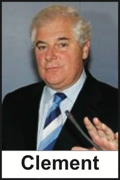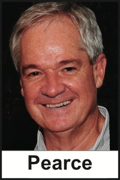Rascals case in brief
In the beginning, in 1989, more than 90 children at the Little Rascals Day Care Center in Edenton, North Carolina, accused a total of 20 adults with 429 instances of sexual abuse over a three-year period. It may have all begun with one parent’s complaint about punishment given her child.
Among the alleged perpetrators: the sheriff and mayor. But prosecutors would charge only Robin Byrum, Darlene Harris, Elizabeth “Betsy” Kelly, Robert “Bob” Kelly, Willard Scott Privott, Shelley Stone and Dawn Wilson – the Edenton 7.
Along with sodomy and beatings, allegations included a baby killed with a handgun, a child being hung upside down from a tree and being set on fire and countless other fantastic incidents involving spaceships, hot air balloons, pirate ships and trained sharks.
By the time prosecutors dropped the last charges in 1997, Little Rascals had become North Carolina’s longest and most costly criminal trial. Prosecutors kept defendants jailed in hopes at least one would turn against their supposed co-conspirators. Remarkably, none did. Another shameful record: Five defendants had to wait longer to face their accusers in court than anyone else in North Carolina history.
Between 1991 and 1997, Ofra Bikel produced three extraordinary episodes on the Little Rascals case for the PBS series “Frontline.” Although “Innocence Lost” did not deter prosecutors, it exposed their tactics and fostered nationwide skepticism and dismay.
With each passing year, the absurdity of the Little Rascals charges has become more obvious. But no admission of error has ever come from prosecutors, police, interviewers or parents. This site is devoted to the issues raised by this case.
On Facebook
Click for earlier Facebook posts archived on this site
Click to go to
Today’s random selection from the Little Rascals Day Care archives….
Click for earlier Facebook posts archived on this site
Click to go to
Today’s random selection from the Little Rascals Day Care archives….
French prosecutors erred – and admitted it!
 April 4, 2012
April 4, 2012
“An appeals court Thursday overturned the conviction of six people accused of participating in a pedophilia ring in northern France five years ago, unraveling one of the most mismanaged cases in French judicial history and leaving the nation asking how the court system could have gone so awry.
“ ‘I apologize to the acquitted and their families,’ Justice Minister Pascal Clement said at a news conference after the verdict was announced in Paris.
“He ordered a triple investigation of the police, judiciary and social services involved in the case…. ‘I want the French people to know that I will get to the bottom of this,’ he said.
“Paris’s chief prosecutor, Yves Bot, had personally asked the appeal court to acquit the six, calling the case a ‘true catastrophe’ and demanding an investigation into who was responsible for such a gross miscarriage of justice. ‘We must do what is necessary to make sure this doesn’t happen again,’ Bot said.
“But others were heartened by the appeal, saying that it showed that the courts were capable of self-criticism and self-correction.
“ ‘That’s indispensable in a democracy,’ said Dominique Wolton, a sociologist at France’s National Council for Scientific Research.
“The case began in 2000 in the town of Outreau after a number of children told a teacher that they had been abused.
“It was marred by deep doubts from the beginning, said Yves Jannier, France’s attorney general.
“He noted that the investigative report by the police in July 2002 found ‘more doubts than certainties’ in the accusations, but said, ‘No one had enough critical sense to stop the machine.’ ”
– From the International Herald Tribune, Dec. 2, 2005
Thanks to lawyer-neighbor Lou Lesesne for steering me to this account of the Outreau Affair.
Although the case differs in numerous significant ways from such U.S. ritual-abuse prosecutions as Little Rascals and McMartin, I was most struck by the readiness of French officials to acknowledge and apologize for a justice system gone crazy.
Soon after, president Jacques Chirac wrote letters to 13 acquitted defendants and to the widow of a defendant who committed suicide in prison awaiting trial: “Justice is the soul of the republic. We have the imperative duty to draw all the lessons from the immense sufferings endured by all the accused whose innocence has now been established.”
How to explain the French state’s humane response to its costly misdeeds, while our own prosecutors, attorneys general, governors, et al., keep silent?
Why aren’t they too “capable of self-criticism and self-correction”?
Why don’t they too recognize “the immense sufferings endured by all the accused”?
For therapist, creating memory is easy task
 June 13, 2012
June 13, 2012
“Actually, making a false memory is pretty easy.
“(Psychologist Elizabeth) Loftus describes a father convincing his daughter she’d gotten lost in a mall when she was five years old. At first, the daughter denied any memory of the event, but as the father provided more fake details – ‘Don’t you remember that I told you we would meet at the Tug Boat?’ – the daughter began to ‘remember’ and even provide details of her own. Eventually when her father said, ‘I was so scared,’ she responded, ‘Not as scared as I was!’…
“You can probably imagine the implications of false memory in the courtroom or on the therapist’s couch (which famously leads to the courtroom)….”
– From “How You Remember, How You Decide: Memory Part II”
by Garth Sundem in Psychology Today (October 6, 2010)
How to make ‘facts and science ultimately irrelevant’
 March 8, 2015
March 8, 2015
“As public debate rages about issues like immunization, Obamacare, and same-sex marriage, many people try to use science to bolster their arguments. And since it’s becoming easier to test and establish facts – whether in physics, psychology, or policy – many have wondered why bias and polarization have not been defeated. When people are confronted with facts, such as the well-established safety of immunization, why do these facts seem to have so little effect?
“Our new research, recently published in the Journal of Personality and Social Psychology, examined a slippery way by which people get away from facts that contradict their beliefs…. (They) reframe an issue in untestable ways. This makes potential important facts and science ultimately irrelevant to the issue….
“These experiments show that when people’s beliefs are threatened, they often take flight to a land where facts do not matter. In scientific terms, their beliefs become less ‘falsifiable’ because they can no longer be tested scientifically for verification or refutation….”
– From “Why People ‘Fly from Facts’ ” by Troy Campbell and Justin Friesen in Scientific American (March 3)
And what allegations could be more “untestable” than pure fantasy? As Junior Chandler knows too well, “….It’s extremely hard to get help to prove my innocence when there isn’t a crime committed to begin with.”
Advising parents ‘one of the damnedest things I ever did’
 Feb. 18, 2013
Feb. 18, 2013
Gov. Jim Hunt was serving his fourth term (1997-2001) when prosecutors dropped the last Little Rascals charges. Although Gary Pearce, Hunt’s longtime adviser and later biographer, doesn’t remember the governor being involved in the case, Pearce experienced his own Edenton moment:
“I actually got called by one of the parents who had heard of me. I met with them and worked with them on a program that UNC-TV did (in 1993 to give parents a chance to respond to “Innocence Lost: The Verdict”). I did it just out of curiosity. It was one of the damnedest things I ever did.
“What the parents were claiming happened was, in the truest sense of the word, incredible. But they seemed absolutely and genuinely and sincerely convinced that it had happened….
“The best word to describe the whole thing is ‘gothic.’”
Defense attorneys were excluded from the program, UNC-TV director Tom Howe explained, because “We’re not really interested in getting into a tit-for-tat about guilt or innocence.”











0 CommentsComment on Facebook